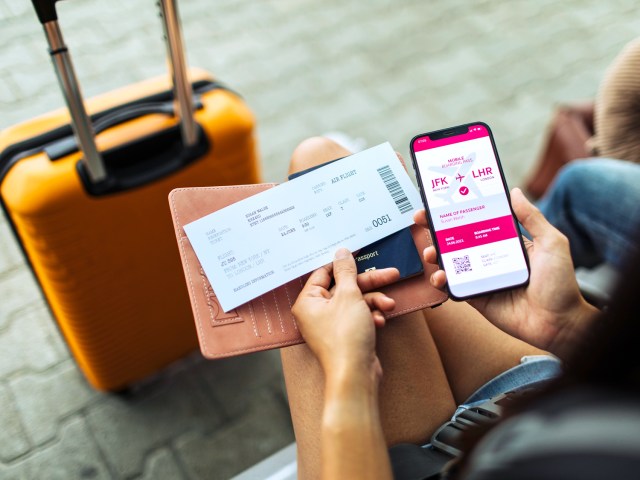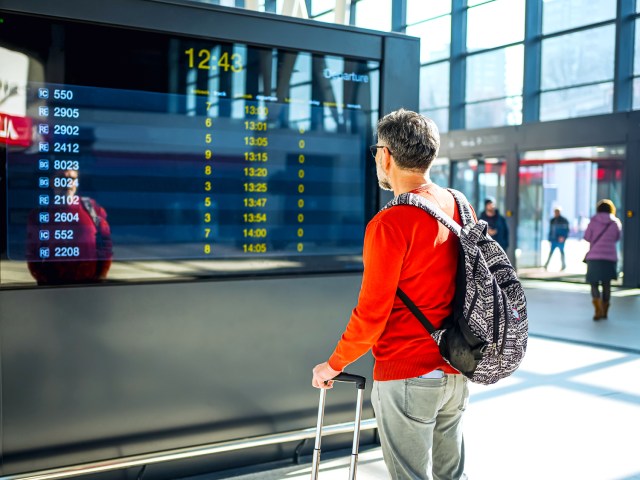As travelers, we often spend days or even weeks tracking airfares to find the best deals on flights. But still, we might hesitate to pull the trigger on that upcoming vacation even when we do land on a seemingly good price. After all, what if airfares drop significantly if we wait a few weeks? Fortunately, there’s a simple travel hack that could end up saving you hundreds of dollars on your next flight — and you don’t have to wait for the exact right moment to book your ticket. Here’s how it works.
Why You Should Keep Monitoring Prices After You Book Your Flight

Once you purchase an airline ticket, you may think the price you paid is locked in, but in many cases, that’s only partially true. During the pandemic, most U.S. airlines permanently removed change fees to allow travelers more flexibility. Some airlines, such as Southwest, never charged change fees to begin with, but other U.S. airlines once charged $200 or more per ticket to change most fare types. (The key word is “most” — some of the cheapest fares, like basic economy, never allow you to change or cancel.)
Let’s say you buy a $400 ticket from Chicago to Orlando. Two weeks later, you see that the price for the same flights dropped to $325. Prior to the pandemic, that $200 change fee wiped away any potential savings to be had by rebooking your flight. But without that change fee, you can reprice the flight and pocket the $75 as a credit toward future travel. That’s why it’s smart to keep an eye on flight prices after booking. Even better, set a price tracker on an airfare comparison site like Google Flights and forget about it until you receive an alert.
The 24-Hour Rule and Refunds

While you can potentially save on airfare if the price drops after you book, it’s almost always in the form of a voucher that can only be used with the airline you booked — you won’t get money back in your pocket. That means you’ll have to keep track of any vouchers or credits you have and use them toward a new flight before they expire (typically one year after issuance).
There’s a notable exception, however: the 24-hour rule. The Department of Transportation requires that airlines allow customers to cancel a booking within 24 hours (as long as it’s more than seven days prior to the departure date) and receive a full refund to their original form of payment. Because of this rule, it definitely makes sense to keep a close eye on prices the day after you book — if prices go down, you can cancel your original flight and get money back on your credit or debit card before making a new reservation for the exact same flight.
Additionally, some airlines may offer a refundability option on tickets for an added fee. For example, if Delta is selling a main cabin fare from Seattle to Los Angeles for $300, it won’t be refundable (though it will be changeable without a fee). But you could see an option to pay an extra $50 during the purchase process to make your ticket fully refundable to your original form of payment, which might be worth the extra fee if you think your plans could change or you’re hoping to score a much better deal closer to departure.
How To Reprice Your Flight

So, how does it work? Before you book anything, pay close attention to the fare type. With most U.S. airlines, basic economy fares are ineligible for changes or refunds once the 24-hour window has passed, so you won’t be able to reprice them if fares go down.
If you’ve booked a standard economy class (sometimes called “main cabin”) ticket, however, you should regularly check fares after booking. If you notice your flights have gone down in price, you can go to your booking on the airline’s website or app and click the option to change your flight and search for the same dates and cities as before.
With some airlines, like Delta or Southwest, you’ll usually see your original flight pop up in your search results, alongside an amount to be credited back to you as a voucher for future travel. Once you reselect those same flights, you will receive an email with the voucher number, and it should also show up in your account if you’re a member of the airline’s frequent flyer program. Then, you can apply this voucher during checkout when booking a new flight.
However, other airlines, like United, don’t make the process as easy. If you find a lower price for your original flight, you may need to call and speak to a reservations agent to rebook. Or you can cancel the flight, receive the voucher, and use that voucher to rebook your flights — saving any remaining amount for a future trip. Though it may be a small hassle to do so, the potential savings can easily outweigh the effort required.
More from our network
Daily Passport is part of Optimism, which publishes content that uplifts, informs, and inspires.























